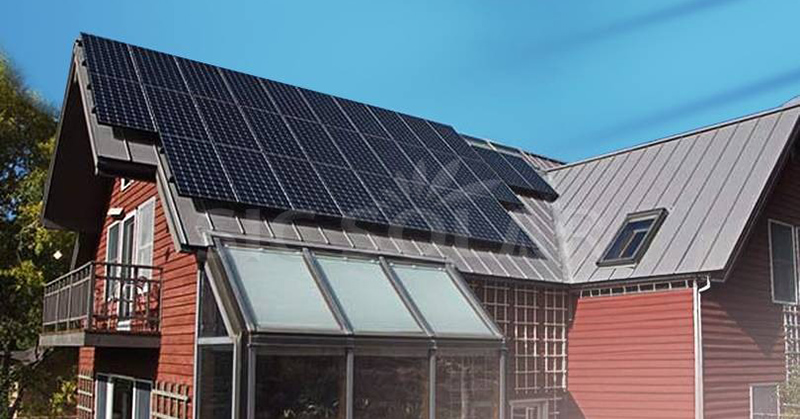As solar energy becomes increasingly popular, many homeowners and businesses are considering the benefits of installing solar panels on their roofs. However, a common concern is the safety of such installations.
Understanding Roof Safety for Solar Installations
When it comes to installing solar panels on a roof, several factors must be considered to ensure the safety of the installation, the integrity of the building, and the well-being of those involved in the process.
- Roof Structure and Condition
Before installing solar panels, it’s crucial to assess the roof’s structural integrity. An experienced professional should evaluate the roof to determine if it can support the additional weight of the solar panels and mounting equipment. Older roofs may require repairs or reinforcements to handle the extra load. - Weather Considerations
Solar panels are designed to withstand various weather conditions, including heavy rain, snow, and strong winds. However, the safety of the installation also depends on the roof’s ability to handle these elements. If your area experiences extreme weather, it’s essential to select mounting systems designed for high winds or heavy snow loads. - Proper Installation Techniques
Safety during installation is paramount. It is vital that the installation be performed by qualified professionals who understand the proper techniques and safety protocols. This includes ensuring that panels are securely fastened, connections are weatherproofed, and any penetrations made for mounting are properly sealed to prevent leaks.
Risks Associated with Roof Installations
While installing solar panels on roofs is generally safe, there are potential risks that need to be managed:
- Roof Leaks: If not installed correctly, solar panels can lead to leaks. Proper sealing and waterproofing are essential to avoid moisture damage to the roof structure.
- Structural Damage: Heavy panels can cause stress on older roofs, potentially leading to sagging or collapse. A thorough assessment can mitigate this risk.
- Electrical Hazards: As solar panels generate electricity, proper wiring and electrical connections are critical to prevent shock or fire hazards. Working with certified electricians is recommended.
Choosing the Right Mounting System
The choice of mounting system is crucial for ensuring a safe and effective solar panel installation. SIC Solar offers a variety of high-quality photovoltaic mounting systems designed for different roof types and conditions. Here are some key features that enhance safety:
- Robust Materials: SIC Solar mounting systems are constructed from durable materials that resist corrosion and wear, ensuring long-term stability and safety.
- Secure Anchoring: Proper anchoring is essential to withstand environmental forces. SIC Solar systems are engineered to provide strong connections that hold panels securely in place, minimizing the risk of movement or detachment.
- Adaptability: Whether dealing with flat or sloped roofs, SIC Solar mounting solutions can be tailored to fit various roof types and configurations, ensuring a safe and effective installation.
Additional Safety Tips
- Professional Consultation: Always consult with solar installation professionals who can provide a detailed assessment of your roof and recommend the best approach for your specific situation.
- Regular Maintenance: After installation, conduct regular inspections to ensure that panels remain securely fastened and that there are no signs of wear or damage to the roof.
- Insurance Coverage: Check with your insurance provider to ensure that your solar installation is covered under your policy, as this can provide peace of mind in case of unforeseen issues.

Installing solar panels on a roof can be a safe and effective way to harness renewable energy, provided that safety measures are taken into account. By ensuring that your roof is structurally sound, using high-quality mounting systems like those from SIC Solar, and employing professional installers, you can mitigate risks and enjoy the benefits of solar energy for years to come.
With the right precautions and planning, your solar installation can not only be safe but also enhance the value of your property and contribute to a more sustainable future. Embracing solar energy is a significant step forward, and ensuring a secure installation is key to maximizing its benefits.